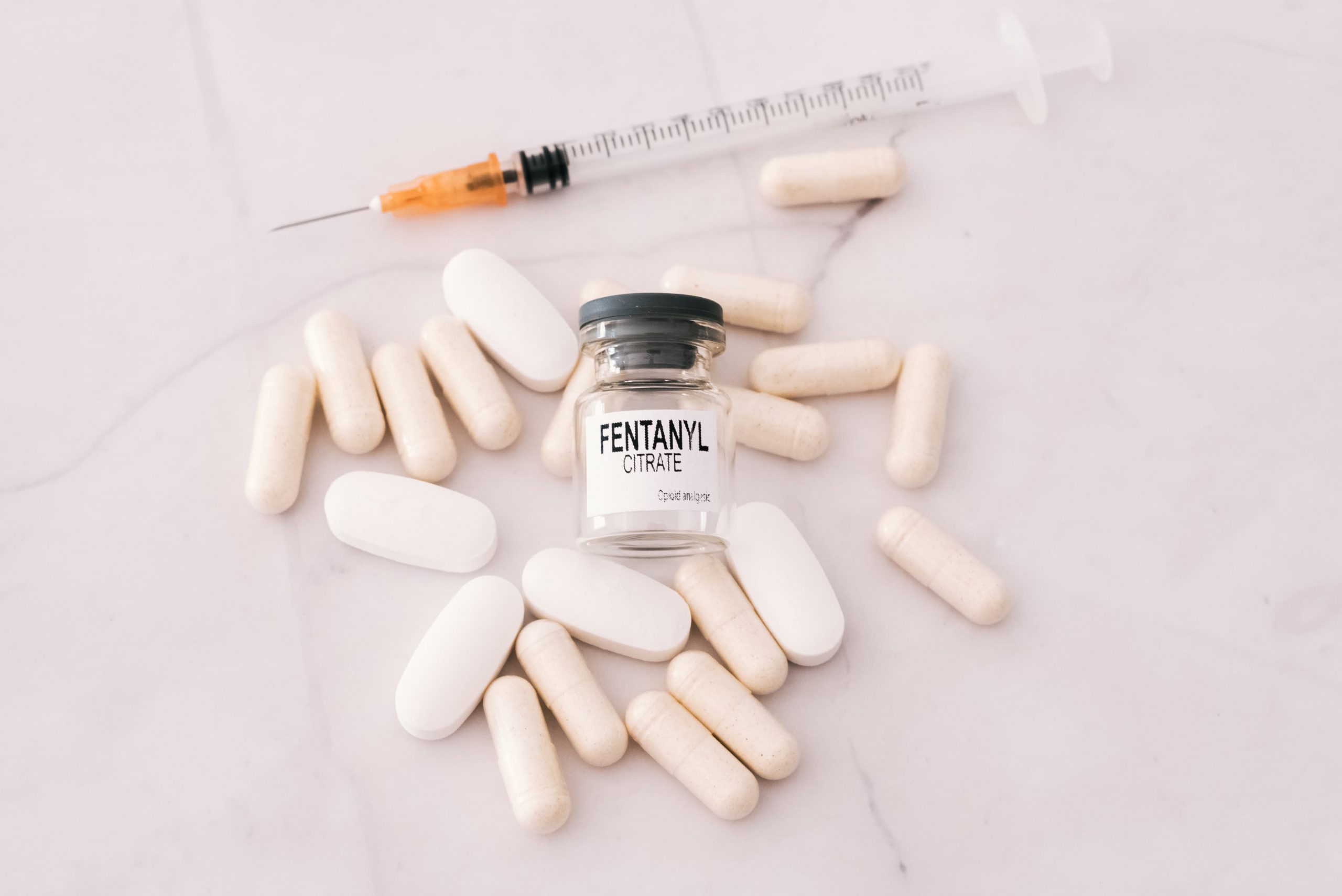

Fentanyl Addiction
Fentanyl is a synthetic opiate used by prescription as an analgesic to treat severe, chronic, and postoperative pain. Oxycodone is a prescribed narcotic that provides pain relief the same way that fentanyl does; both of these over-the-counter medications can be habit-forming and, for some, highly addictive. Many countries have banned its use in medical settings in favor of drugs that are less addictive. But many already addicted to strong opioids began substituting fentanyl to feed their habit when oxycodone became unavailable. Today, a growing number of fentanyl users either abuse their prescriptions or buy from dealers who are selling:
- Medical-grade drugs that they obtained through a prescription
- Someone else’s prescription drugs
- Fentanyl that’s been manufactured illicitly to supply those who require or desire a greater quantity than what prescriptions can provide

What is Fentanyl?
Fentanyl can be administered by injection or slow-release patch, but it also comes in lozenge form, and when used strictly to get high, it’s often chewed or smoked. Fentanyl is known to be 50 times stronger than heroin and 100 times stronger than Morphine.
Because it’s similar to but more powerful than morphine, fentanyl is often used for patients who are tolerant to other opiates. Not only does this drug provide pain relief, but it’s also associated with highly pleasurable effects like feelings of euphoria, making fentanyl addiction treatment necessary for many patients who inadvertently develop a dependence or who become addicted through recreational use.


Fentanyl Addiction
Adults often become addicted to fentanyl when they are prescribed it as a painkiller, and the full-body pain relief combines with an emotional high that proves difficult to resist.
They continue using the drug long after their medical necessity for it has ended. Among teens and young adults, addiction often occurs when they take leftover medication prescribed to a friend or parent. Other contributing factors can cause addiction severe enough to require fentanyl addiction treatment, and they include:
- Genetic factors, such as being predisposed to addiction or having a genetic medical condition that requires strong pain-relief medication
- Psychological issues, such as emotional problems caused by trauma or abuse or mental disorders that lead to drug use as a form of self-medication
Because of the surge in addiction, fentanyl abuse treatment is now available at many high-quality rehab facilities, including Beachway, where we offer personalized programs and therapy to help you overcome your addiction, regardless of the circumstances that led you to it.


Fentanyl Withdrawal & Detox
Addiction to any drug is a serious problem, not only because of its negative effects on your mind and body but also because of its detrimental impact on your life and relationships. Addiction has some characteristic signs, and people who experience fentanyl addiction may exhibit specific symptoms:
- Unable to cut down without the help of a fentanyl rehab facility
- Taking larger quantities of the drug than intended and for a longer period
- Recognizing that the drug is causing problems but are unable to stop using
- Becoming less responsible and less reliable to their commitments
- Have increasing tolerance and stronger cravings for the drug
- No longer interested in the people and activities that were once important
- Abstinence triggers feelings of; anxiety, anger, insomnia, agitation, gastrointestinal issues, chills, and sweats


Fentanyl Addiction
and Overdose
Although fentanyl has important medical uses, it is an opioid, meaning it’s highly addictive. With this drug, it’s not uncommon for people to begin using it under medical supervision but then abuse it and form a habit. When this happens, they may eventually require long-term treatment.
There’s also a high possibility of overdose with fentanyl because it’s much stronger than many other opioids. The drug’s potency often catches first-time users off guard. For those who haven’t developed a tolerance to the drug, a dose that’s too high can suppress breathing and lead to respiratory failure. The early signs of overdose include:
- A slowed heart rate
- Extreme sleepiness
- Shallow breathing
- Difficulty breathing
- Clammy skin
- Loss of coordination and difficulty walking
- Difficulty speaking

Contact Us Today for Treatment
If you or a loved one is showing any of these signs of addiction, it’s possible that the addiction has gone too far, and you may need fentanyl abuse treatment. Because the detox and withdrawal process can be so intense, it’s often safer and more effective to seek fentanyl treatment at an experienced rehab facility like Beachway, where you’ll be able to overcome your addiction and regain control of your life.
Fentanyl use can ruin personal and professional lives, and severe abuse can lead to overdose and death. Fentanyl addiction treatment will help you get your habit under control, allow you to detox in a supervised environment, and show you how to prevent future relapses. Contact Beachway today at 877-284-0353 to speak with one of our addiction experts.



